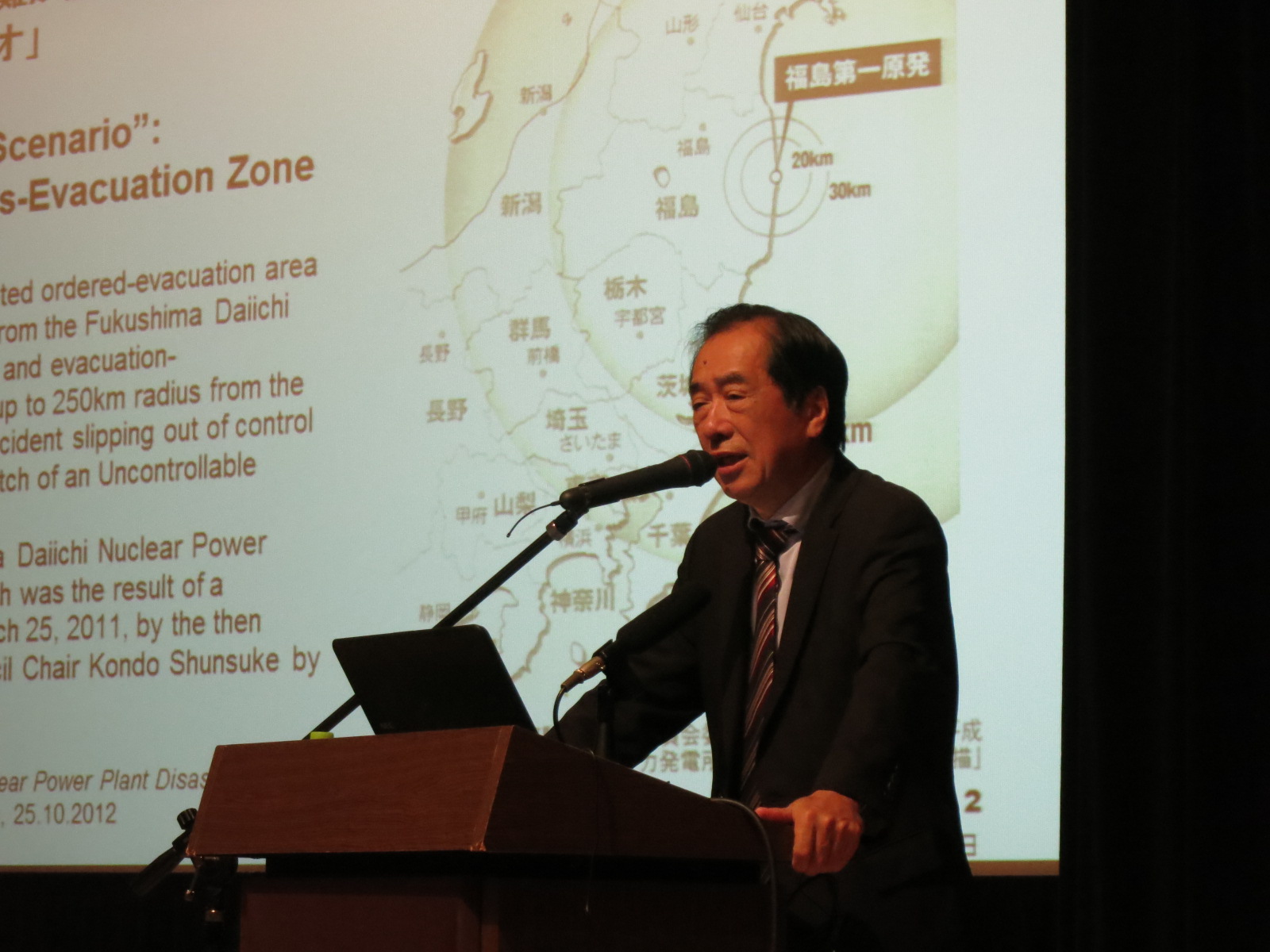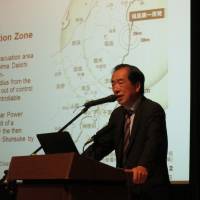Although the first reactor in Japan to be fired up in two years went online last month, former Prime Minister Naoto Kan said Wednesday that Japan needs to seek a nuclear-free path.
This is a lesson the country has learned from the Fukushima nuclear disaster, said Kan, who was prime minister when the Fukushima No. 1 plant was hit by a huge quake and tsunami on March 11, 2011.
"I'm absolutely sure that there will no longer be nuclear power by the end of this century. This is because it doesn't make sense economically, and enough energy can be provided without it," Kan said in a lecture to foreign residents in Tokyo.
While reactor 1 at the Sendai plant in Kagoshima Prefecture was restarted in August, Japan has survived the past few summers without nuclear power, Kan said.
He added that although the current government is still promoting nuclear power, Japan has seen an increase of renewable energy since the Fukushima accident, especially from solar panels.
He said nuclear power was believed to be a cheap source of energy, but it is actually expensive, considering the cost of decommissioning and managing nuclear waste.
Kan also shared his experience of visiting Olkiluoto Nuclear Power Plant in Finland, where a final nuclear waste repository is being constructed. There, he was told it would take 100,000 years for the radiation of nuclear waste to descend to the same level of the uranium that exists in the natural environment.
Using nuclear power, Kan said, means increasing the amount of dangerous waste that will trouble future generations, adding that this is why other former prime ministers such as Junichiro Koizumi and Morihiro Hosokawa are also voicing their wish to end Japan's dependence on it.




















With your current subscription plan you can comment on stories. However, before writing your first comment, please create a display name in the Profile section of your subscriber account page.